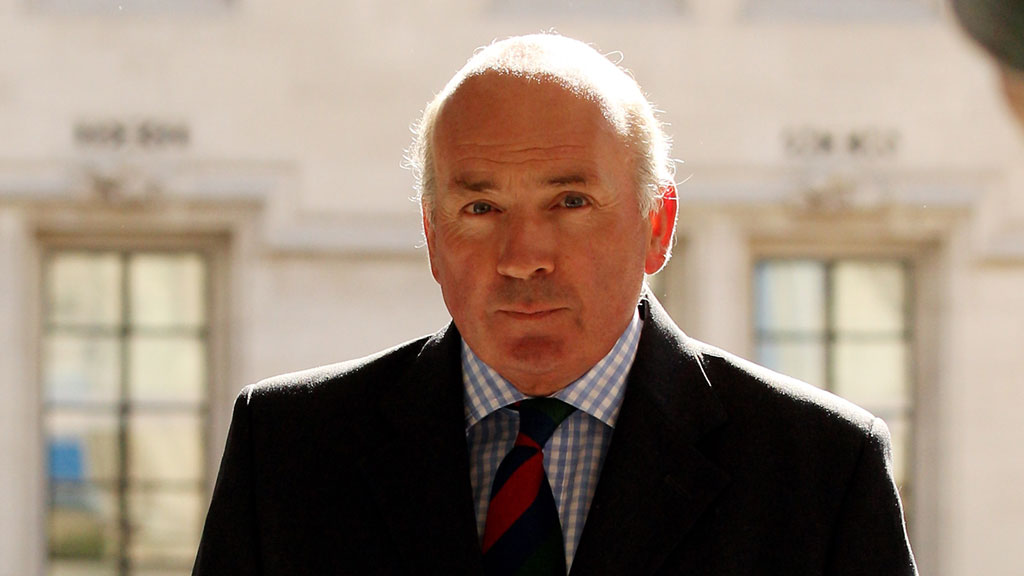Ex-defence chiefs in lobbying row
Ex-military chiefs could be barred from contact with ministers and Ministry of Defence officials after several were secretly filmed claiming to be able to help secure contracts for arms firms.

Defence Secretary Philip Hammond said at least one of the senior armed forces figures filmed by the Sunday Times was still subject to the two-year ban on lobbying imposed on departing personnel on leaving public service, adding any breaches would be investigated.
But he said he was satisfied that “robust” procedures were in place to ensure procurement decisions could not be influenced, suggesting the generals and others were guilty of “bigging up their capabilities”.
They were filmed in talks with reporters posing as representatives of a South Korean weapons manufacturer seeking to recruit them to help sell “drone” aircraft to the UK government.
Among those targeted were Lieutenant General Sir John Kiszely, ex-head of the Defence Academy and now president of the Royal British Legion, former MoD procurement chief Lieutenant General Richard Applegate, Admiral Sir Trevor Soar, commander-in-chief fleet of the naval fleetuntil earlier this year, and the ex-head of the Army Lord Dannatt.
All deny breaking any rules, the newspaper said, and insist they had the best interests of the military at heart.
Two-year ban
Sir Trevor is reported to have said he could simply “ignore” the two-year ban imposed by the Advisory Committee on Business Appointments because the enforcement system was ineffective.
The newspaper also claims that Sir John and Lt Gen Applegate said they lobbied on deals while they were in the “purdah” period and that Sir John talked of being able to speak to senior figures at a Remembrance Day event.
Lord Dannatt said he could speak to the MoD’s top civil servant, a former school friend, it said.
Mr Hammond said the revelations were “deeply damaging to the individuals concerned and their reputations” but insisted there was “no way that retired officers influence the way that military equipment is procured”.
But rules appeared to have been broken and could need a tougher enforcement, he said.
“There are many, many reasons why it is sensible for the MoD to maintain contact with retired officers. They are often asked (by the media) to comment on things that are going on in the defence area,” he told BBC1’s Andrew Marr Show.
‘We will have to tighten it up’
“But if they are abusing that access for commercial purposes then we will have to tighten it up or maybe even shut it down. That is something we will now look at.”
He added: “Clearly at least one, possibly more, of the individuals named in the Sunday Times piece were still under the terms of the two-year restriction that applies after they have left the service.
“If we find that people are not abiding by the advice they are given then we will need to look at whether there are steps we can take to shut down their access to ministers and officials.”
Like in a string of other undercover “cash for access” stings to hit Westminster in recent years, he said, people were “rather bigging up their capabilities” and showing “bravado” to impress.
Mr Hammond also issued a warning to arms firms that engaging in such lobbying would backfire.
“If we were to make clear to companies that the kind of lobbying being talked about here will damage them rather than benefit them, that will be quite effective.”
‘Serious’ allegations
The advisory committee – which has faced demands to be broken up and replaced with a more powerful watchdog with powers to punish rule breaches – said the allegations were “serious” and should be urgently investigated.
“We are drawing them urgently to the attention of ministers, the head of the civil service and the permanent secretary at the Ministry of Defence for them to consider what action they might take.”
Lord Dannatt, who was an adviser to David Cameron before the 2010 election, said he offered to “facilitate conversations” but nothing that would be in breach of lobbying rules and rejected an £8,000 monthly fee offer.
The Sunday Times said he “candidly talked about side-stepping a ban on discussion of a £400 million contract by ‘targeting’ the MoD’s top civil servant, with whom he went to school”.
Lord Stirrup, the former chief of the defence staff, who was also said to be able to call on “old friend and powerful contacts” to help in a lobbying campaign, told the Sunday Telegraph that was a “totally false picture”.
He said: “I was interested because they were purporting to be developing technologies that could save people’s lives. I said I could facilitate conversations with people in the military. I did not offer to lobby anyone on their behalf.”
Full disclosure
Shadow defence secretary Jim Murphy said: “These are grave allegations that have to be fully investigated. We need to know every detail, every meeting and every contact between those recorded in this video and those still serving in the MoD.
“The Government must have full disclosure about any dealings between these retired distinguished officers and government ministers, civil servants or senior members of the armed forces.
“Specifically we need to know if they have met any MoD officials dealing with any defence equipment contracts.
“Britain has a global reputation in defence procurement and it is essential that it is maintained. There has to be total clarity that not a single penny piece of defence spending has been influenced by this type of rule breaking lobbying.”